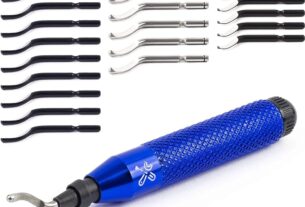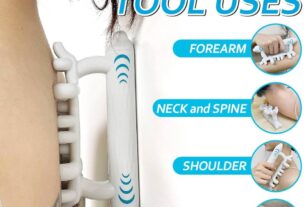Small precision tools are a crucial component of many industries, from electronics to manufacturing. These delicate instruments allow for precise measurements and intricate work that simply wouldn’t be possible with larger, less precise tools. However, with so many different options available on the market today, it can be overwhelming to choose the right ones for your needs.
In this comprehensive guide, we’ll take an in-depth look at small precision tools. We’ll cover everything from the different types of tools available to how to choose the right ones for your specific needs. So let’s dive in!
[h2]What Are Small Precision Tools?[/h2]
Small precision tools are exactly what they sound like: tiny tools designed for incredibly precise work. They’re often used in fields such as electronics manufacturing, watchmaking, jewelry making, and even medicine. These tools range from miniature screwdrivers and pliers to microscopes and calipers.
[h2]Types of Small Precision Tools[/h2]
There are a wide variety of small precision tools available on the market today. Let’s take a closer look at some of the most common types:
[h3]Micro Screwdrivers[/h3]
Micro screwdrivers are miniature versions of standard screwdrivers. They’re typically made with very fine tips that allow you to access screws in tight spaces or with very small heads. These screwdrivers come in a variety of sizes and shapes, so it’s important to choose the right one for your specific needs.
[h3]Pliers[/h3]
Miniature pliers are another essential tool for precision work. They come in a wide variety of shapes and sizes, including needle-nose pliers, flat-nose pliers, and round-nose pliers. These pliers are perfect for gripping small objects or bending wire into intricate shapes.
[h3]Tweezers[/h3]
Tweezers are a must-have tool for any precision work. They allow you to pick up and manipulate small objects with ease. There are many different types of tweezers available, including pointed tweezers, flat-tipped tweezers, and serrated tweezers.
[h3]Calipers[/h3]
Calipers are used to measure the distance between two points with incredible precision. They come in both digital and analog versions, and can be used for measuring everything from the diameter of a wire to the thickness of a piece of paper.
[h3]Microscopes[/h3]
Microscopes are essential tools for anyone working with tiny objects or materials. They allow you to see things that would be impossible to see with the naked eye, making them invaluable for fields such as electronics manufacturing and biology.
[h2]Choosing the Right Small Precision Tools[/h2]
When it comes to choosing small precision tools, there are a few important factors to consider:
[h3]Your Specific Needs[/h3]
The first thing to consider when choosing small precision tools is your specific needs. What type of work will you be doing? What level of precision do you require? Once you have a clear understanding of your needs, you can begin to narrow down your options.
[h3]Quality[/h3]
It’s important to choose high-quality tools that will last for years to come. Look for tools made from durable materials such as stainless steel or titanium, and read reviews from other users to ensure that the tools you’re considering are built to last.
[h3]Brand Reputation[/h3]
Choosing tools from reputable brands is another important factor to consider. Look for brands with a history of producing high-quality products that have been tested and reviewed by others in your industry.
[h2]Using Small Precision Tools Safely[/h2]
Using small precision tools safely is essential to avoid injury or damage to your work. Here are a few tips to keep in mind:
[h3]Wear Eye Protection[/h3]
Small precision tools can create tiny particles that can easily get into your eyes. Always wear eye protection when working with these tools.
[h3]Keep Your Workspace Clean[/h3]
Make sure your workspace is clean and free of debris before you begin working. This will help prevent accidental damage to your work or injury to yourself.
[h3]Use Tools Correctly[/h3]
Always use small precision tools correctly and according to their intended purpose. Using a tool incorrectly could result in damage to the tool, your work, or even yourself.
[h2]In Conclusion[/h2]
Small precision tools are essential for anyone working in fields that require precise measurements or intricate work. By choosing the right tools for your specific needs and using them safely and correctly, you can ensure that you’re able to achieve the level of precision required for success in your field.
If you’re interested in learning more about small precision tools, be sure to check out reputable online resources such as Wikipedia’s page on Precision Engineering, as well as other authoritative websites like MIT Technology Review and Popular Mechanics.




